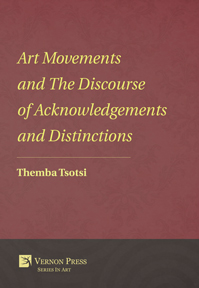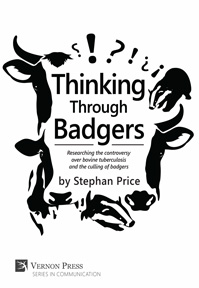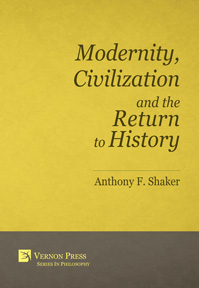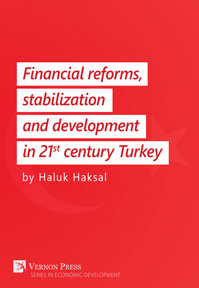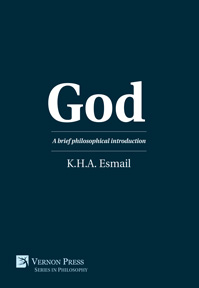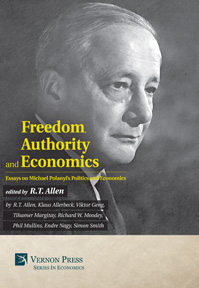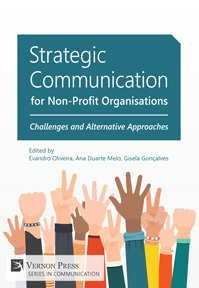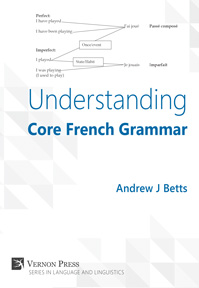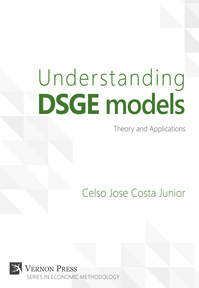Search
Browse
by Publication status
by Subject
Anthropology (28) Art (126) Business and Finance (27) Cognitive Science and Psychology (56) Communication and Journalism (49) Economics (63) Education (70) History (150) Human Geography (22) Interdisciplinary (43) Language and Linguistics (139) Law (16) Music Studies (19) Philosophy (162) Political Science and International Relations (105) Sociology (323) Statistics and Quantitative Methods (21)by Series
Series in Literary Studies (71) Series in Philosophy (59) Series in Education (55) Series in Sociology (46) Bridging Languages and Scholarship (33) Series in Politics (33) Series in World History (32) Series in Language and Linguistics (25) Series in Philosophy of Religion (22) Cognitive Science and Psychology (21) Series in American History (20) Critical Perspectives on Social Science (19) Series in Art (19) Series in Cinema and Culture (16) Series in Critical Media Studies (16) Curating and Interpreting Culture (15) Series in Anthropology (14) Series on the History of Art (14) Economics (14) Series in Business and Finance (13) Series in Music (12) Series in Communication (10) Series in Performing Arts (9) Philosophy of Personalism (8) Series in Law (8) Series on Climate Change and Society (8) Series in Economic Methodology (7) Women's Studies (7) Classics in Economics (6) Series in Economic Development (6) Philosophy of Forgiveness (5) Series in Built Environment (5) Series in Economic History (5) Series in Philosophy of Science (5) Series in Social Equality and Justice (5) Series on the History of Science (4) Serie En Estudios Literarios (3) Serie en Sociología (3) Series in Contemporary History (3) Series in Creative Writing Studies (3) Series in Design (3) The Interdisciplinary Built Environment (3) Serie en Comunicación y Medios (2) Serie en Historia (2) Serie en Música (2) Series in Heritage Studies (2) Series in Innovation Studies (2) Series in Philosophy of Race (2) Serie en Ciencias Políticas (1) Serie en Entorno Construido (1) Serie en Estudios Culturales (1) Serie en Filosofía (1) Serie en Filosofía de la Ciencia (1) Serie sobre Cambio Climático y Sociedad (1) Series in Classical Studies (1) Series in Economics of Technological Change (1) Series in Urban Studies (1)by Language
English Spanishby Author
Art Movements and The Discourse of Acknowledgements and Distinctions
March 2017 / ISBN: 978-1-62273-060-5Availability: In stock
184pp. ¦ $30 £25 €28
This is a work of critical theory in the deconstructionist tradition. It investigates the impact and role of visual art practice in cultural dispensation. Its central argument is that conceptions of ‘leadership’ and of ‘being a subject’ (or subjugation) play a formative role in the manner with which cultural ideas are appropriated and spread out in organic interactions within the community. The arguments advanced in this work demonstrate that leadership conceptions are disseminated as ‘signs’ (a conceptual term for how ideas and their significance are understood in the context of cultural dispensation) and that signs have historical roots and connotations. Using deconstructionist techniques like différance, this work concretises the critical in the discourse which states that ‘signs’ in the cultural dispensation are in constant interaction with each other in terms of defining their historic, epistemic and contemporary ‘meaning’. The Discourse of Acknowledgements and Distinctions introduces three concepts that account for themselves through the infinite propensities of social contexts and the ‘signs’ that anchor them for referral. These are the notions of Cerebrinity, Hysteridence and Remembrance. The use of psychoanalysis – and of the perspectives of Kristeva, Jung and Freud - distinguishes this book from other works of critical theory that deal with art and art movements. The book aims to illuminate on the propensity of the community to participate in its own subjugation in the context of Modernity. It is concise and incorporates critical theory perspectives by writers like Baudrillard, Lyotard, Kristeva and Spivak. It can be appreciated by art students interested in the intersection between visual art, critical theory and psychoanalysis.
Napoleon’s Purgatory
The Unseen Humanity of the “Corsican Ogre” in Fatal Exile (with an introduction by J. David Markham)
Thomas M. Barden, Fellow in the International Napoleonic Society
Availability: In stock
334pp. ¦ $55 £44 €50
Napoleon’s Purgatory is a work portraying the human side of Napoleon as revealed by those who shared his exile on the island of St. Helena. Through the diaries and journals of the Emperor’s servants, generals, and companions come the stories of Napoleon’s tender love for children, his captivating sense of humor, his eternal love for Josephine, and his agonizing death. Napoleon Bonaparte was sent by the British to the remote island of St. Helena where he could not escape. What followed were six excruciating years of loneliness and depression, mixed with frolicking play with the island’s children, a battle of wills with his British captor, an exploration of his lapsed Catholic faith, and the complex relationship with the members of his entourage. This time in exile was akin to time served in Purgatory for Napoleon. His humanity, suffering, joy in the laughter of children, and longing for Josephine are captured vividly in this work through the detailed use of primary sources written by those who were there. While many considered Napoleon Bonaparte the “Corsican Ogre” for the wars he waged across Europe, he was anything but during his exile on St. Helena.
Thinking Through Badgers
Researching the controversy over bovine tuberculosis and the culling of badgers
Stephan Price, University of Exeter
Availability: In stock
334pp. ¦ $60 £48 €55
Bovine tuberculosis is seriously damaging the UK dairy and beef industry. Many farmers believe culling badgers must be part of the solution, but in 2013 a record 300,000 people signed a Downing Street petition asking the government to stop planned culls of badgers in Somerset and Gloucestershire, fuelling media controversy and signalling the beginning of a social conflict that was acted out in studios, streets, fields and village halls across England. The four-year trial culls, which began that year, aimed to establish that culling was a viable way of tackling the disease, but the widely divergent experiences and values of policy-makers, farming, conservation and animal welfare supporters means that decades of science on the disease in badgers and the effects of culling has not helped resolve the dispute. Reporting on original, UK research council-funded social science, this book takes on the challenge of understanding the contrasting views involved. Listening carefully to what the different protagonists have to say, the book unpicks the way science is interpreted to sustain differing conclusions, and considers how social science thinking could contribute. The book develops a critical perspective on the increasingly important literature influenced by new materialism, the social science response to the Science Wars, and explores the extent to which a social movement around opposition to the culls is emerging. In approachable prose, this access-all-areas account describes the struggle to develop understanding through the messy process of research and the difficulties of scientific analysis and philosophical thought. As such, it provides a valuable resource for both research practitioners and teachers within the social sciences, as well as an accessible way for biological scientists, conservationists and farmers to reflect on the issues around the management of disease in livestock and wildlife.
Modernity, Civilization and the Return to History
January 2017 / ISBN: 978-1-62273-184-8Availability: In stock
586pp. ¦ $80 £68 €77
The modern concept and study of civilization have their roots, not in western Europe, but in the spirit of scientific investigation associated with a self-conscious Islamicate civilization. What we call modernity cannot be fathomed without this historical connection. We owe every major branch of science known today to the broad tradition of systematic inquiry that belongs to a “region of being”—as Heidegger would say—whose theoretical, practical and institutional dimensions the philosophy of that civilization played an unprecedented role in creating. This book focuses primarily on the philosophical underpinnings of questions relating to civilization, personhood and identity. Contemporary society and thinking in western Europe introduced new elements to these questions that have altered how collective and personal identities are conceived and experienced. In the age of “globalization,” expressions of identity (individual, social and cultural) survive precariously outside their former boundaries, just when humanity faces perhaps its greatest challenges—environmental degradation, policy inertia, interstate bellicosity, and a growing culture of tribalism. Yet, the world has been globalized for at least a millennium, a fact dimmed by the threadbare but still widespread belief that modernity is a product of something called the West. One is thus justified in asking, as many people do today, if humanity has not lost its initiative. This is more a philosophical than an empirical question. There can be no initiative without the human agency that flows from identity and personhood—i.e., the way we, the acting subject, live and deliberate about our affairs. Given the heavy scrutiny under which the modern concept of identity has come, Dr. Shaker has dug deeper, bringing to bear a wealth of original sources from both German thought and Ḥikmah (Islamicate philosophy), the latter based on material previously unavailable to scholars. Posing the age-old question of identity anew in the light of these two traditions, whose special historical roles are assured, may help clear the confusion surrounding modernity and, hopefully, our place in human civilization. Proximity to Scholasticism, and therefore Islamicate philosophy, lent German thought up to Heidegger a unique ability to dialogue with other thought traditions. Two fecund elements common to Heidegger, Qūnawī and Mullā Ṣadrā are of special importance: Logos (utterance, speech) as the structural embodiment at once of the primary meaning (essential reality) of a thing and of divine manifestation; and the idea of unity-in-difference, which Ṣadrā finally formulated as the substantial movement of existence. But behind this complexity is the abiding question of who Man is, which cannot be answered by theory alone. Heidegger, who occupies a good portion of this study, questioned the modern ontology at a time of social collapse and deep spiritual crisis not unlike ours. Yet, that period also saw the greatest breakthroughs in modern physics and social science. The concluding chapters take up, more specifically, identity renewal in Western literature and Muslim “reformism.” The renewal theme reflects a point of convergence between the Eurocentric worldview, in which modernism has its secular aesthetics roots, and a current originating in Ibn Taymiyyah’s reductionist epistemology and skeptical fundamentalism. It expresses a hopeless longing for origin in a historically pristine “golden age,” an obvious deformation of philosophy’s millennial concern with the commanding, creative oneness of the Being of beings.
Financial reforms, stabilization and development in 21st-century Turkey
Haluk Haksal, University of Geneva, Switzerland
Availability: In stock
486pp. ¦ $60 £48 €55
The central argument of this book is that while central bank independence can contribute to stabilization, inflation-targeting monetary policy is quite powerless in promoting economic development. The basic message is simple: Policy makers should not strive to achieve price stability at any cost, as stability in product markets does not necessarily translate into economic development. The recent experience of Turkey is illuminating and other developing countries, in particular those using inflation targeting monetary policy framework, can draw useful lessons from this experience. Early chapters summarize the deregulation process from 1980 to 2001. The Turkish Central Bank is placed at the center of the analysis as monetary policies have a significant impact both on stability and development. Although the 1994 and 2001 financial crises have been extensively studied elsewhere, they are nevertheless summarized to underscore the importance of central bank independence. Later chapters investigate the impact of an independent central bank on stabilization and development from 2001 onwards. Upon visiting the Turkish Central Bank's website, readers are greeted with the following statement: "The primary objective of the Bank is to achieve and maintain price stability." By the end of this book the reader should be able to assess the relative merits of a monetary policy that focuses on price stability, versus an alternative where price stability is accompanied by other objectives targeting development, for instance, monitoring also unemployment rates, which would undermine its independence to some degree. The study aims to provide a perspective on the need for such an alternative in line also with the vision of some international agencies on development, such as the UNCTAD and the ILO. This is the first book-length study examining the financial reforms Turkey undertook in its path towards EU accession. This unique work will be of interest to economists and other experts in financial history, (de)regulation, institutional economics and economic development, as well as a broad range of scholars interested in the dramatic transformation of Turkey's economy and society in the 21st century.
Portrait of Young Genius – The Mind and Art of Marie Bashkirtseff
December 2016 / ISBN: 978-1-62273-171-8Availability: In stock
304pp. [Color] ¦ $85 £68 €80
Marie Bashkirtseff was of one of the most extraordinary women of the 19th century. Her Journal (originally comprising some 20,000 hand-written pages but pared down to a few hundred for publication) was a cause célèbre after her death and continues to be an inspiration to the Women’s Movement to this day. It also inspired such great writers as Anaïs Nin and Katherine Mansfield among many others. Born into an aristocratic family in a village in Ukraine the family soon settled in France, first in Nice and later in Paris. Taught entirely by tutors Marie spoke multiple languages, played numerous musical instruments and longed for a singing career on the stage. An illness that affected her throat made her change course and she took up painting for which she had a latent talent. As a student at the Académie Julian in Paris she was soon exhibiting at the annual Paris Salon, the premier venue for artists. But it was her personality that makes Marie Bashkirtseff such an exceptional individual. At a very young age she was already exhibiting in her Journal the thoughts of a learned philosopher, wrestling with the nature of God, the position of women in society, the politics of men. Having contracted tuberculosis in early childhood she ceaselessly strove to shrug it off in her quest to achieve greatness. In the end, a great tragedy unfolds. The book is somewhat unique in format. The first part is a biographical section that describes Marie’s unusual and fascinating life. Then a second section, consists of a single Journal excerpt (in English translation from the original French) on each left-hand page, juxtaposed with one of her outstanding works of art on the facing page. In this manner, we learn about her remarkable life and tribulations, enter her restive and brilliant mind via her Journal, as well as appreciate her exceptionally fine works as an artist.
God: A brief philosophical introduction
K.H.A. Esmail, University of Cambridge
Availability: In stock
290pp. ¦ $60 £49 €55
This is a clear and original investigation of God's nature and existence. First of all, it considers two of God’s traditional properties: being all-knowing and being all-powerful. It argues he cannot possess these properties. But, it argues this is in accord with him being worthy of worship. Secondly, it introduces the notion of evil being “overridden”. It argues he has to bring about other free living things and it is plausible they have to be liable to experience evil due to their conditions. But, it argues the evil in this world is “overridden”. Thirdly, it considers the principal arguments for the claim he does not exist. (They refer to the evil in the world.) It argues they do not establish sufficient grounds for this claim. Finally, it considers some well-known arguments for the claim he exists. It argues they face difficulties. It sets out other arguments. It covers as a whole the principal parts of the Philosophy of Religion. It unifies these parts to a significant degree. It proceeds regularly by way of formal and clear arguments. These arguments are frequently original. It will be of interest to advanced students and specialists in Philosophy, Religious Studies and Theology. Given its explanation of key terms, its jargon-free language, its clarity and brevity.... , it will be of interest to others, too.
Freedom, Authority and Economics: Essays on Michael Polanyi's Politics and Economics
Edited by
R. T. Allen
Availability: In stock
188pp. ¦ $60 £48 €55
This edited volume of original contributions deals with the economic and political thought of Michael Polanyi. Requiring little prior knowledge of Polanyi, this volume further develops a somewhat neglected side of Polanyi's work. In particular it examines the 'tacit integration', of subsidiary details into focal objects or actions as central to all knowing and action. It traces ontological counterparts in the structures of comprehensive entities and complex actions, and a multi-level universe in which lower levels have their boundary conditions, the extents to which they apply, determined by those of the next higher level, whilst each possessing its own laws or operative principles. This schema of 'dual control' preserves the reality and relative autonomy of each level, and its interactions with others, against the various reductions. The essays in this volume also employ and develop important additional concepts and distinctions such as: 'corporate' and 'spontaneous' order; 'public' and 'private' liberties; 'general' and 'specific authority'; and 'moral inversion'; which, as the essays show, are necessary for understanding and maintaining a free society and the freedom of institutions within it. Among the topics treated with them are: more of the prerequisites of freedom in public liberties dedicated to principles and transcendent values; totalitarianism and society as spontaneous order; the balance of general and specific authority in society and particular institutions; reductionism, totalitarianism and consumption in consumer societies, as moral inversions; the mutual interactions of economics and politics as distinct and autonomous but interacting levels; the sociological aspects of economics; and Polanyi's own contributions to sociology. Although, as indicated, Polanyi has his special terms, the essays in this volume, like his works, give them meaning with concrete examples and so avoid merely shuffling a mass of abstractions. Together the essays show that his work is a rich seam of ideas and inspiration for yet further extension and application.
Communication Images in Derek Walcott's Poetry
October 2016 / ISBN: 978-1-62273-132-9Availability: In stock
326pp. ¦ $75 £65 €70
This book investigates the potential purpose of recurrent communication images in the poetry of Derek Walcott. The recipient of the Nobel Prize for literature in 1992, Walcott is one of the most important postcolonial poets of the 20th century. His poetry delves into the dynamics of Caribbean marginalization and seeks to safeguard the paradigms characteristic of his island home. Several major studies have examined themes in his poetry but the images of communication in his poetics have not been explored. This book examines Walcott’s poetry expressions that the poet brings into play in order to demonstrate the relevance of the Caribbean in the contemporary world—firstly through a study of communication imagery, and secondly through an examination of the conclusions he reaches through these means. The quantitative chart demonstrates that Walcott is especially reliant upon images of communication from the 1980s. Extensive textual analysis indicates that the place and contextual meaning of communication imagery, for example, page mirrors the historical plight of the Caribbean region; likewise, line expresses an identity deficit. Finally, this book validates that Walcott’s extensive use of communication imagery in his poetry contributes to a fluid notion of self that embraces multiculturalism while maintaining the imaginary intact.
Intervention or Protest
Acting for Nonhuman Animals
Edited by
Andrew Woodhall, University of Birmingham
and Gabriel Garmendia da Trindade, University of Birmingham
Availability: In stock
410pp. ¦ $75 £58 €68
Within current political, social, and ethical debates – both in academia and society – activism and how individuals should approach issues facing nonhuman animals, have become increasingly important, ‘hot’ issues. Individuals, groups, advocacy agencies, and governments have all espoused competing ideas for how we should approach nonhuman use and exploitation. Ought we proceed through liberation? Abolition? Segregation? Integration? As nonhuman liberation, welfare, and rights’ groups increasingly interconnect and identify with other ‘social justice movements’, resolutions to these questions have become increasingly entangled with questions of what justice and our ethical commitments demand on this issue, and the topic has become increasingly significant and divisive. The book considers how this question, and contemporary issues facing nonhumans (such as experimentation, hunting, and factory farming) should be answered by drawing on both theory and practice in order to provide grounded, yet actionable, ways forward. Indicatively, the book covers topics such as: • The intersection between interspecies ethics and the ethics of war and self-defence • Nonhuman animals as political subjects and acting agents • Whether we should intervene for nonhuman animals in cases of natural disaster • Various explorations of why the nonhuman movement may not be succeeding as well as it could be • Comparisons between the nonhuman movement and other social movement • Arguments for and against intervening to help or save nonhumans, and how far we may go • What intervention could ultimately mean for nonhumans The book is therefore intended not only to provide new and interesting insight into the area and important contemporary discussions, but also to constructively aid the nonhuman movement and unite theory and practice on the crucial issues. With the nonhuman movement and its past approaches currently being questioned as a success, more nonhumans than ever being harmed and exploited, and a growing gulf between activists and scholars, this book will not only be a timely addition to the literature, but an attempt to bridge these gaps and move both theory and practice – and thus the movement and field – forward.
Strategic Communication for Non-Profit Organisations
Challenges and Alternative Approaches
Edited by
Evandro Oliveira, University of Leipzig, Germany et al.
Availability: In stock
308pp. ¦ $70 £55 €65
Communication in the public sphere as well as within organizational contexts has attracted the interest of researchers over the past century. Current forms of citizen engagement and community development, partly enabled through digital communication, have further enhanced the visibility and relevance of non-profit communication. These are performed by the civil society, which is 'the organized expression of the values and interests of society' (Castells, 2008) in the public sphere. Non-profit communication feeds the public sphere as 'the discursive processes in a complex network of persons, institutionalized associations and organizations,' whereas those 'discourses are a civilized way of disagreeing openly about essential matters of common concern' (Jensen, 2002). Despite the relevance in the public sphere, non-profit communication was never properly defined within communication research. The aim of the present book is to offer an overview and report on Strategic Communication for Non-Profit-Organisations and the Challenges and Alternative Approaches. Considering the assumption that a key principle of strategic communication is the achievement of organisational goals, the majority of research developed in the field has used business environments to develop theories, models, empirical insights and case studies. Here, we take a step towards new approaches centred on the concept of non-profit in various dimensions and from various perspectives, showing the diversity and complexity around this subject and at the same time the need of further theoretical and empirical work that provides frameworks and also tools for further understanding of the phenomena.
Self-Preservation at the Center of Personality
Superego and Ego Ideal in the Regulation of Safety
November 2016 / ISBN: 978-1-62273-103-9Availability: In stock
184pp. ¦ $45 £35 €42
The book discusses personality as a unified set of evolved and culturally developed structures that serves a single and definable purpose, to maintain the individual’s safety, in the context of dyadic relationships, group processes and more abstract and fluid social configurations. The infant-mother relationship remains the blueprint for modes of relating to the social surround, at whatever level of complexity, and for approximating the sense of safety originally provided by the mother. The personality is organized around the need to maintain self-esteem, thereby preserving the individual’s sense of safety and warding off deep-seated paranoid anxiety, which signals the potential of annihilation of the self. Paranoid anxiety is the counterpart of intraspecific aggression and the potential of the group as a whole to attack and annihilate the individual. Paranoid anxiety, which was recognized by Melanie Klein as playing a critical role in infant development, is not overcome as development proceeds but remains latent, buried under layers of personality organization that are essentially concerned with sourcing recognition and approval from the social environment, thereby inhibiting others’ aggression and guarding against annihilation of the self. The book adds to self psychology (Kohut) by showing how the principle of self-preservation underpins all aspects of normal and abnormal character dynamics. It integrates self psychology with other branches psychoanalytic theory and revives the link between psychoanalysis and ethology. Ethology (Lorenz, Hass, Eibl-Eibesfeldt) has provided insights into how interrelated intraspecific aggression and appeasement gestures are critically important for the evolution of social behavior in higher animals as well as for cultural evolution in humans, insights that allow, more generally, for a bridging of the gap between psychoanalysis and the biology of social behavior. Furthermore, an evolutionary approach to character dynamics and related social phenomena will have important implications for understanding psychopathological vulnerabilities and self-perpetuating processes in mental illness.
The Philosophy of Forgiveness - Volume II
New Dimensions of Forgiveness
Edited by
Court D. Lewis, Pellissippi State Community College
Availability: In stock
321pp. ¦ $55 £35 €45
Volume II of Vernon Press’s series on the Philosophy of Forgiveness offers several challenging and provocative chapters that seek to push the conversation in new directions and dimensions. Volume I, Explorations of Forgiveness: Personal, Relational, and Religious, began the task of creating a consistent multi-dimensional account of forgiveness, and Volume II’s New Dimensions of Forgiveness continues this goal by presenting a set of chapters that delve into several deep conceptual and metaphysical features of forgiveness. New Dimensions of Forgiveness creates a theoretical framework for understanding the many nuanced features of forgiveness, namely, third-party forgiveness, forgiveness as an aesthetic process, the role of resentment in warranting forgiveness, the moral status of self-forgiveness, epistemic trust, forgiveness’s influence on the moral status of persons, forgiveness in time, the status of Substance and Subject within a Hegelian framework, Jacques Derrida’s “impossible” forgiveness, and the use of imaginative “magic” to become a maximal forgiver. Readers will be challenged to question and come to terms with many oft-overlooked, yet important philosophical dimensions of forgiveness.
The Philosophy of Forgiveness - Volume I
Explorations of Forgiveness: Personal, Relational, and Religious
Edited by
Court D. Lewis, Pellissippi State Community College
Availability: In stock
294pp. ¦ $55 £35 €45
Volume II of Vernon Press’s series on the Philosophy of Forgiveness offers several challenging and provocative chapters that seek to push the conversation in new directions and dimensions. Volume I, Explorations of Forgiveness: Personal, Relational, and Religious, began the task of creating a consistent multi-dimensional account of forgiveness, and Volume II’s New Dimensions of Forgiveness continues this goal by presenting a set of chapters that delve into several deep conceptual and metaphysical features of forgiveness. New Dimensions of Forgiveness creates a theoretical framework for understanding the many nuanced features of forgiveness, namely, third-party forgiveness, forgiveness as an aesthetic process, the role of resentment in warranting forgiveness, the moral status of self-forgiveness, epistemic trust, forgiveness’s influence on the moral status of persons, forgiveness in time, the status of Substance and Subject within a Hegelian framework, Jacques Derrida’s “impossible” forgiveness, and the use of imaginative “magic” to become a maximal forgiver. Readers will be challenged to question and come to terms with many oft-overlooked, yet important philosophical dimensions of forgiveness.
Marketing & Economics
An integrative approach to making effective business decisions in the global marketing world.
July 2016 / ISBN: 978-1-62273-104-6Availability: In stock
228pp. ¦ $40 £28 €30
This book bridges the disciplines of economics and marketing and brings them to bear on the analysis of contemporary business problems. The world has changed dramatically over the last four decades. Sociologically, technologically, economically and politically speaking the world is changing at an increasing pace. The spread of ideas and values are reinforcing the impact of globalization on various business operations and activities. As the late Peter Drucker once remarked: “while you were out the world changed.” To make sense of to the world we live in, we are compelled to draw from diverse disciplines and subjects.This book focuses on the contributions of economics and marketing. The basic principles, theories and issues of economics are selected and are integrated with key elements and principles of marketing. Marketers, in conventional as well as in digital markets, are encouraged to integrate marketing with economics in order to make successful and effective business decisions. Marketing and Economics are subjects dealing with business – business of private firms, not-for-profit organisations and that of government. Economics involves allocation of scarce resources. Scarcity in economics is relative scarcity, scarcity in relation to demand. Written in a casual, accessible language and taking very little for granted, this book is for anyone who is curious about economics and marketing. It provides the essential analytical framework necessary for thriving in today's business. In its diverse chapters it covers topics such as offshoring, the circular economy, benchmarking, mergers and acquisitions, knowledge and innovation, services industries, customer relationships, advertising and communication, among others. It is particularly well suited to undergraduates in business or economics and its fresh perspectives on today's challenges would be of interest to business managers and marketing professionals.
Understanding Core French Grammar
Andrew J Betts, Lancing College
Availability: In stock
165pp. ¦ $30 £25 €28
This book contains an explanatory treatment of the core areas of difficulty for the English speaking learner of French. It deals with the key issues in tense formation and use and verbal structures and processes such as negation, passives and subjunctives along with a highly exemplified treatment of pronouns and a section dealing with adjectives and other elements of the grammar. It fills a gap between general text books of French in which grammatical issues are frequently treated piecemeal and scattered throughout the book in between more communicative information on one hand and exhaustive reference grammars aimed at graduate and research students on the other which would be beyond the level of intellectual maturity of most school children and some non-specialist undergraduates. It has the advantage of treating each grammatical issue in detail but without being too long-winded, explaining the systems and processes which underlie the facts of the language. The emphasis is on explanation and not merely the listing of facts, enabling the learner to master the system and become an independent user of the language. It could be used highly successfully either as a classroom aid alongside the more usual textbooks which are organized typically around topics and themes in society or for self-study for the committed individual learner of any age. There are extensive exercises and answers for all topics covered.
Understanding DSGE models
Theory and Applications
Celso Jose Costa Junior, São Paulo School of Economics, Brazil
Availability: In stock
280pp. ¦ $70 £58 €65
While the theoretical development of DSGE models is not overly difficult to understand, practical application remains somewhat complex. The literature on this subject has some significant obscure points. This book can be thought of, firstly, as a tool to overcome initial hurdles with this type of modeling. Secondly, by showcasing concrete applications, it aims to persuade incipient researchers to work with this methodology. In principle, this is not a book on macroeconomics in itself, but on tools used in the construction of this sort of models. It strives to present this technique in a detailed manner, thereby providing a step by step course intended to walk readers through this otherwise daunting process. The book begins with a basic Real Business Cycle model. Subsequently various frictions are gradually incorporated into a standard DSGE model: imperfect competition; frictions in prices and in wages ; habit formation; non-Ricardian agents; adjustment cost in investment; costs of not using the maximum installed capacity; and finally, Government.
Questioning History
16 Essential Questions That Will Deepen Your Understanding of the Past
June 2016 / ISBN: 978-1-62273-105-3Availability: In stock
350pp. ¦ $45 £33 €38
Since the days of the Ancient Greeks, history has been perceived as the academic study of the past. Unfortunately, it has generally been taught as a litany of rigid, boring facts intended to be accepted rather than questioned. This has been reinforced for decades by weighty textbooks that overwhelm the reader with mind-numbing details presented in a chronological sequence. The end result is that students see little relevance of what they learn in history class to the real world, and many simply struggle to stay awake. Compared to other subjects taught at the secondary level, history is frequently judged to be the most boring. This is largely because it is viewed as an intellectually lifeless subject that presents few opportunities for active engagement. Questioning History is a book built around 16 essential questions designed to challenge this common assumption. Each question is broad, open-ended and subject to vigorous debate. By examining the historical background behind each question and by analyzing the ways in which the question can be answered, the reader will come away with a deeper understanding of the past and a new appreciation for history as a cognitively dynamic subject. In addition, by using each chapter as a platform for engaging discussions and Socratic seminars, the reader will be able to refine the decision-making skills necessary for effective citizenship in a democratic society. Depending on the classroom or the setting in which it is being used, Questioning History can either take the place of the more traditional textbook or at least be used as a supplement to make it come more alive. The best way to learn and to appreciate a subject is through active engagement. Questioning History provides a shot of adrenalin to the study of history.
Self, History and Future
A work on the modality of history
July 2016 / ISBN: 978-1-62273-473-3Availability: In stock
188pp. ¦ $45 £30 €40
Be it Foucault’s insight into a society based on ‘power-knowledge’ or Fukuyama’s attempts to predict the future based on the end-game situation of ‘liberal democracy’, both are like trying to work out a curvature of a line from a given point by using pre-calculus maths. No amount of elaborate narratives based on a quasi-dynamic, phenomenological concept like ‘discourses’ or a static concept like ‘liberal democracy’ will capture the dynamism of moving events and their fluid directions called ‘future’. You need the methodology of operative concepts that process moving events. My essay is based on a holistic and dynamic concept with logical progressions. Instead of capturing movements as a still picture I try to record constantly changing situations in terms of modality of history. It is the necessity of tangencies and encompassments for Circles of Identity (CI) that forms history. The momentum of ‘self’ that bridges the past and the future is the propellant of CIs, which follows certain rules to suggest our destiny.
Network Society
How Social Relations rebuild Space(s)
Roberta Iannone, Sapienza University of Rome, Italy
et al.
Availability: In stock
230pp. ¦ $70 £55 €60
The present volume attempts to critically evaluate claims that modern society may be read and understood as a network. Accepting that this perspective holds some potential, the question becomes how to best capitalize on it. To analyze society as a network means to respond not only to the “actual needs”, but also to highlight the "opportunities" and the "utilities", and to investigate whether society is increasingly relational or just perceived as such, as e.g. digital "social networks" and related concepts exemplify. From a strictly scientific perspective to answer the question "how to" read society as a network means to ask ourselves: a) if the conceptual categories (especially the concepts of structure and exchange) and the paradigms of traditional analysis (holism and individualism, both in the functionalist and the conflictive versions) are still sufficient; b) if new conceptual categories/theories/instruments are needed to represent more properly the reality we face: to investigate it, to explain it or, at least, to understand it. Starting from a reflection on already established social networks (Scott, 2003), the fundamental differences between groups and networks (Vergati, 2008), the logics of networks (Serra, 2003) as well as social capital formation and links (Di Nicola, 2006; Mutti, 1998), we seize the spatial dynamics, seemingly following opposite paths, but which revert to a common denominator: de-spatialization and re-spatialization, namely the processes of dematerialization of space(s) and its reconstruction by specific relational dynamics and forms. The study of networks is therefore not attributable to a single theory but to several theories converging towards a unique perspective (spaces) and logical reasoning (Serra, 2001) each one with its own uniqueness. The strength of this volume and the difference with respect to other attempts at explaining the Network Society lies in the multidimensional and interrelated perspectives it offers emerging from converging multidisciplinary perspectives (sociological, anthropological and linguistic), and from applications that the Network Society provides, namely, international (European Governance), institutional, public (linguistic landscape of the city of Rome) and mediated ones (communication technology).

